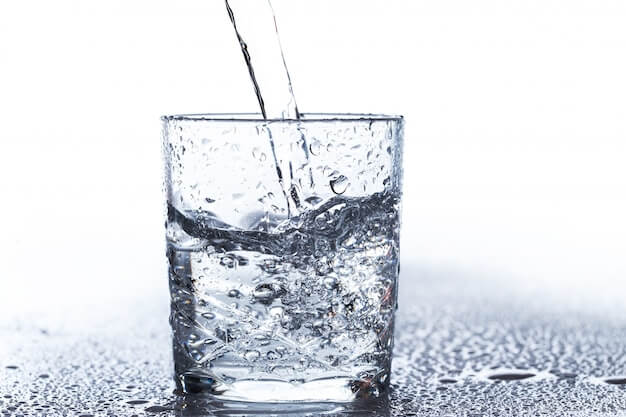The continuous high temperature and hot weather in summer can not be ignored for people with cardiovascular diseases. Once they relax their vigilance, heart failure is very likely to occur, and heart failure is the end stage of various heart diseases, known as the stumbling block of life, which seriously endangers life and health.
Among the middle-aged and old people, the incidence of cardiac insufficiency caused by various organic heart diseases such as hypertension and coronary heart disease is very high. The arrival of summer has made the temperature in some areas continue to rise. Many elderly people are affected by the hot climate, and heart disease has increased significantly. In order to enable patients with hypertension and heart disease to safely spend the summer, we put forward several protection suggestions here.
Pay attention to drinking water
With the increase of temperature, the human body perspires significantly, leading to blood concentration, increased blood viscosity, and slower blood flow, thus reducing the oxygen and nutrients obtained by the body tissues. Due to ischemia and hypoxia of heart, brain and other important organs, some patients showed dizziness, brain swelling, numbness of limbs, chest tightness and shortness of breath. Drinking more water can not only replenish the water lost from sweating, but also dilute the blood, reduce the blood viscosity, reduce the heart load, and prevent the formation of cerebral thrombosis. Therefore, it is recommended that patients develop the habit of drinking tea and drinking water every day, and drink more tea brewed with honeysuckle and chrysanthemum (it is not easy to drink strong tea), which can not only quench thirst and relieve summer heat, eliminate fatigue, but also expand blood vessels and promote blood circulation, thus enhancing the effect of anti inflammation.

Adjust drugs
Once hypertension is diagnosed, it should be taken for life. Because patients have limited understanding of drug knowledge, if there is no appropriate education and guidance for patients, even if the doctor prescribes the correct prescription, it is difficult for patients to receive long-term treatment consistently. In hot summer, due to the increase of temperature, the peripheral blood vessels of the whole body expand, and the blood pressure is lower than usual, so the dosage of medication should generally be reduced, and more long-term and mild antihypertensive drugs should be selected. In addition, due to excessive sweating and electrolyte loss in summer, the use of diuretic and antihypertensive drugs is prone to hypokalemia, and it is best to avoid using such drugs as far as possible. In addition, due to the influence of hot weather, the elderly often have poor sleep quality, which leads to elevated blood pressure at night and increases the burden of cardiovascular and cerebrovascular diseases. Most patients suddenly get sick late at night, so we should pay attention to improving the quality of sleep, and take some sleeping pills when necessary.
Diet Conditioning
Obesity of middle-aged and elderly patients with hypertension and heart disease cannot be ignored. Diet should be properly controlled and intake of salt and fatty foods should be limited, such as animal viscera, eggs, fish seeds, fat meat, etc., while soybean products, milk, freshwater fish can be appropriately eaten more. We should also eat more fresh fruits and vegetables, such as celery, garlic, bananas, hawthorn, etc. They have the functions of promoting blood circulation and removing blood stasis, digestion and strengthening stomach, lowering blood pressure and fat, and expanding coronary vessels. They can not only relieve constipation, but also supplement vitamins and minerals needed by the body.

Prevention of heatstroke
In hot summer, outdoor activities at noon should be avoided, otherwise heatstroke and cardiovascular and cerebrovascular diseases are easily induced. Outdoor exercise should be done in the early morning and should not be strenuous. With the improvement of living conditions, the number of household air conditioners has increased. However, the use of air conditioners should be scientific and reasonable. Generally, the temperature difference between indoor and outdoor should not be too large, preferably 8 ℃. At the same time, special attention should be paid to avoid direct blowing of cold air into the air conditioner for a long time just after coming back from the hot outdoor, which is most likely to cause the disorder of human vascular regulation function, leading to accidents in cardiovascular and cerebrovascular patients.
Health Education
Health education can improve patients' health beliefs, and patients who are worried about diseases should be better psychologically guided. On the one hand, guide the family members to take care of the patients more patiently, so that they can build confidence and courage to defeat the disease; On the other hand, it should be made clear that hypertension and heart disease can live a long and healthy life as long as they are effectively controlled and treated. In addition, TV, radio, newspapers and magazines, which are closely related to life, can also be combined with the most trusted medical personnel and medical books of patients to form a set of lively and easily accepted medical knowledge, so as to improve the communication effect of health education.
Practice has proved that patients with hypertension, coronary heart disease, cardiac insufficiency, etc. can achieve the goal of treatment and rehabilitation as long as they pay attention to diet adjustment, adhere to rehabilitation training, use drugs reasonably, maintain a pleasant mood, eliminate the tension caused by disease, and enhance the body's ability to resist disease.
